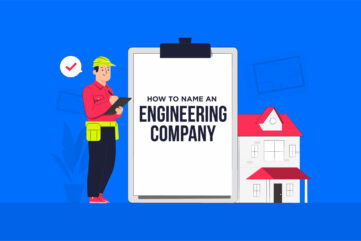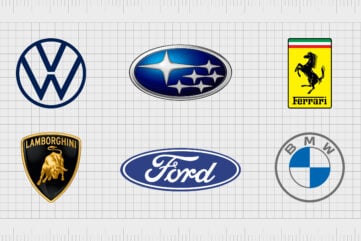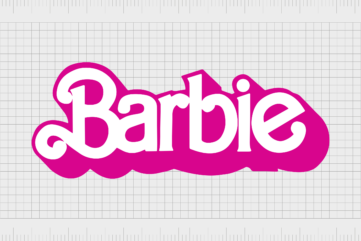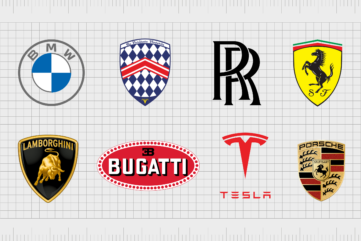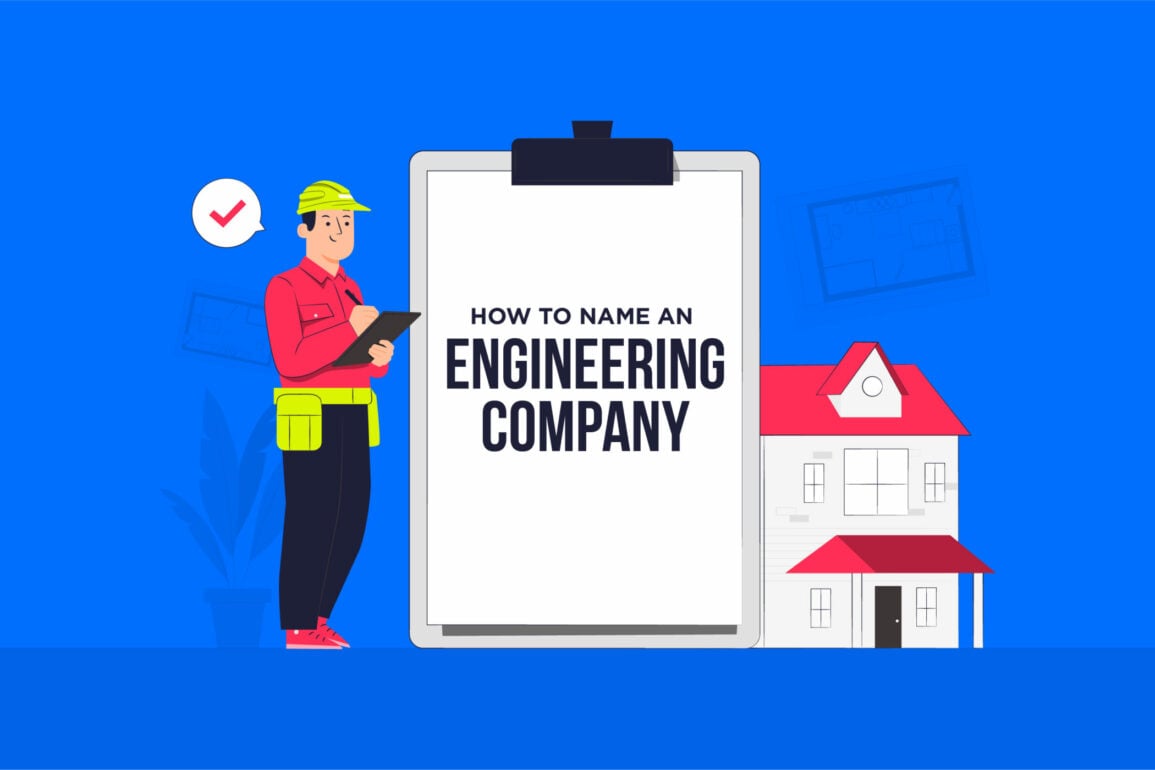What is an evocative brand name? The pros and cons of evocative brand names

Could evocative brand names be the ideal tool for defining your brand? The process of choosing the ideal name for your company can often be a lot more complex than you’d think. Your name is one of the most important assets you have, crucial for differentiation, brand equity, and growth.
One of the biggest challenges many business owners face when selecting a moniker, involves choosing between a range of different “styles” of name. A name can be descriptive, telling your audience exactly what you do and where you stand.
Your moniker can also be an invented word, created completely from scratch to define your brand identity.
An evocative name is one of the more popular choices for brand naming. It allows a company to highlight its value and personality, without necessarily saying what the business does.
Companies use these names to form emotional connections with their audience, boost memorability, and differentiate themselves from their competitors.
Today, we’re going to explore the nature of evocative brand names, discuss the pros and cons of this kind of naming process, and determine how you can decide if an evocative name is right for you.
What is evocative naming? An introduction
Let’s start with the basics: what is evocative naming?
As mentioned above, there are a few ways you can name a company in today’s competitive world. Options range from acronyms and initialisms to geographical and founder-based names. However, the most common types of brand name typically fall into two segments: descriptive and evocative.
Descriptive names are exactly what you’d expect. They focus on capturing the attention of an audience by telling them everything they need to know about the solution on offer straight away.
Think American Airlines or Burger King. With these kinds of names, you don’t have to make much of an effort to explain the nature of your brand to your customers.
Unfortunately, descriptive names can lack emotional impact, and they’re often difficult to trademark for a range of reasons. Evocative names are a little more creative.
With an evocative name, the focus is on using suggestion and metaphor to link your company to a specific idea, feeling, or concept. Think about “Amazon”. The name doesn’t tell you the company sells a host of different products online.
However, it does suggest you’re going to be dealing with a large, exotic brand.
Because evocative brand names leave room for interpretation, they get your customers thinking about your business, can help create brand equity, and contribute significantly to your brand story and personality.
Evocative names are great for creating a brand bigger than just your services or products.

What is an evocative brand name? Making an impression
Evocative brand names are versatile. In a world where customers are looking for a lot more than just the best features or prices from a company, they allow you to connect your brand to a deeper emotional meaning.
Evocative names rise above the goods and services on offer, to paint a bigger picture of what your business stands for.
When compared to an alternative like a descriptive name, the best way to think of an evocative name is as something focused on metaphorical, rather than literal description. To create an evocative brand name, businesses need to dive a little deeper into what makes their company unique.
Typically, the process starts with exploring the personality, USP, mission, and values of the business. For instance, Nike wanted to imbue its name with a sense of achievement and passion.
The company needed something short, sweet, and memorable, but it also wanted to ensure its title was inspirational – capable of reaching its audience on a deeper level.
Using the name of the Greek goddess of victory was a stroke of genius for the Nike team. While you don’t get an instant insight into what the company does with this name, you do get a feeling for its mission, purpose, and brand promise.
The biggest issue with evocative brand names is they’re somewhat vague. Some terms, like Nike, won’t immediately have an impact on your audience if they don’t know what it stands for. This means you need to work harder as a company to make your branding clear, and market your business.
Because evocative names aren’t directly about what they’re describing, it’s difficult to know for certain if everyone will perceive your title in the same way. There’s a risk some people will take the title the wrong way.
For example, Banana Republic wanted to convey an exotic nature with its name, but the association of the term with a derogatory phrase has caused some controversy over the years.
What are the pros of evocative brand names?
Evocative brand names are some of the most common in the business world. They’re often seen as more creative and meaningful than directly descriptive names. Evocative names can also be a little easier to promote and develop than an invented name or acronym.
With an evocative name, you can tell a story about your business which grows and evolves with your company, rather than focusing on a specific service or product. Some of the biggest businesses in the world have developed strong relationships with customers through evocative names.
Some of the biggest benefits of brand names include:
Memorability
Evocative names push your audience to think more carefully about the meaning of your title, and what it stands for. This can help the moniker to stay in the minds of your target audience for longer and may drive better results for your brand.
Emotional impact
Using metaphor and suggestion, you can connect with your audience on a deeper, emotional level. Telling a story with your evocative brand name is an excellent way to connect with your audience and create a sense of loyalty.
Trademarking
It can be easier to trademark a name like “Virgin” or “North Face” than it would be to trademark a descriptive name. However, you may find you still have a few more challenges than you would with a completely invented name.
Versatility
While a descriptive name focuses heavily on the products and services you offer when you’re first launching your brand, an evocative name offers more room for growth. You’re more able to evolve with one of these titles.
Personality
An evocative brand name forms the basis of a strong brand personality and identity for your business. It’s a great way to start sharing your values and mission with your audience straight away, from the moment they start interacting with your company.
What are the cons of an evocative name?
As mentioned above, evocative brand names can be very valuable to your business, when used correctly. Although there are some potential problems with these titles too.
For instance, because evocative names for products and companies are created to complement the positioning and mission of your brand, rather than describe your products, they can be hard to get shareholder approval for.
Coming up with evocative names can also be a lot more difficult than simply using a geographical, founder-based, or descriptive name. They require you to dive a lot deeper into your brand, your audience, and your market.
Some of the major disadvantages of evocative names include:
Confusion
There’s no guarantee your customers will immediately understand the meaning of your name. In some cases, they may even try to impose definitions themselves, which may be very different from what you’re trying to convey with your title.
Complexity
Choosing a brand name with a metaphoric impact can be very difficult, particularly if you don’t have a lot of experience with language and linguistics. There’s also a risk you could choose something which doesn’t resonate in certain parts of the world.
Expense
Because evocative names aren’t immediately obvious for defining your brand, you may need to invest a lot more time and money into making your brand stand out. This means you’ll spend more on positioning, marketing, and building brand awareness.
Research
You’ll need to do significant research into your target market, the meaning of different words, and your market position to ensure you get your evocative name right. It’s easy to miss important information which could disrupt the naming process.
Examples of evocative brand names
If you’re struggling to decide whether evocative brand names might be suitable for your business, it may be helpful to take a closer look at some of the more successful titles on the market using this strategy.
Some of the best examples of evocative names include:

1. Nike
Easily one of the best examples of an evocative brand name around, Nike is a memorable, engaging, and powerful title. First launched in 1964, Nike wanted to choose a name capable of setting it apart from countless other sports equipment companies in the landscape.
The name “Nike” comes from the Greek goddess of victory, which immediately connects the brand to a focus on ambition, achievement, and excellence. The name also follows other good naming conventions – it’s short, easy to say, and easy to remember.

2. Patagonia
Clothing company Patagonia gives us another excellent example of the power of evocative brand names. According to the business, the name was chosen because the company wanted to evoke an idea of a mysterious and far-off land.
Rather than simply connecting the business to clothing and apparel, Patagonia wanted to make its customers think about glaciers tumbling into fjords and stunning mountains. They also note the name is easy to pronounce in every language.

3. Amazon
We’re all familiar with the company “Amazon” today, although the brand very nearly had a number of different names before Jeff Bezos settled on the iconic title.
At the time of choosing the name, the Amazon was the largest river on the planet, and Bezos believed it would help to link the brand to ideas of infinite versatility and size.
Amazon’s name is strong and evocative. It’s an exotic sounding name, which is excellent for a brand selling a wide range of products. It also ensures the company has been able to evolve easily over the years, adding new items to its portfolio.

4. Virgin
Virgin is one of the most interesting brands in the world today. The company has evolved significantly over the years, branching out into a range of fields – something it couldn’t have done with a restrictive brand name.
The title “virgin” actually comes from the very start of the company.
According to Richard Branson, he and his team were all complete “virgins” at business, and they wanted to convey this with their title. The name also has a sense of purity and transparency to it which makes it excellent for building trust.
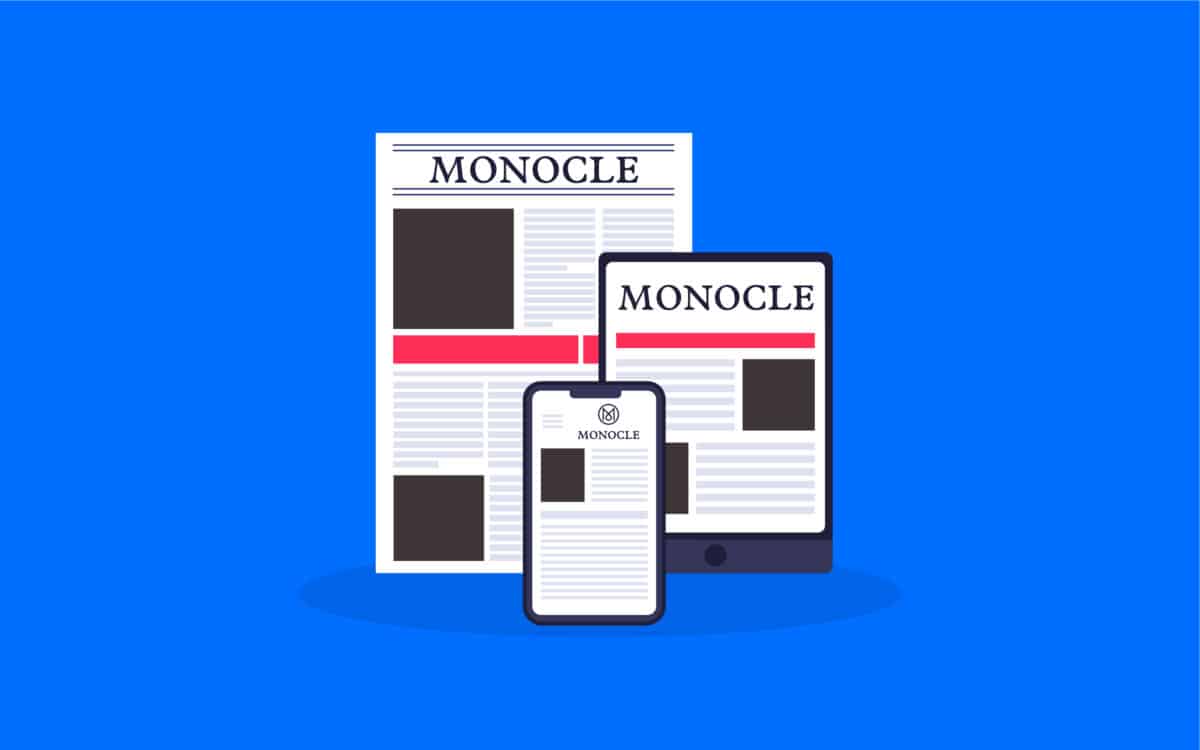
5. Monocle
A global affairs and lifestyle magazine founded in 2007, Monocle has become a very well-known publication over the years. The team wanted to choose a name capable of differentiating it from the more common names used for newspapers and magazines at the time.
The word “monocle” instantly makes us think of reading. However, it also has a sense of heritage and sophistication to it. This ensures we get a clear idea of the company’s personality, and the kind of content it publishes.

6. Apple
The Apple brand is one of the biggest technology groups in the world, responsible for a huge selection of tablets, computers, and phones. However, you wouldn’t necessarily guess this company was involved in the tech industry by looking at its name alone.
Apple’s company name has a lot of meaning behind it. The word “Apple” immediately conveys ideas of nourishment and growth, as well as knowledge, thanks to its connection with the story of Adam and Eve from the bible, and Isaac Newton’s discovery of gravity.

7. Greyhound
A fun and engaging name for a transportation company, “Greyhound” immediately sets the brand apart from countless other organizations in the same space. First launching in 1914, the company wanted to highlight its speed and sophistication with its name.
The word “greyhound” was chosen to link the business to the speed of the animal in question and make us think about elegance and power. The title is fantastic for creating an emotional connection with the company’s audience.
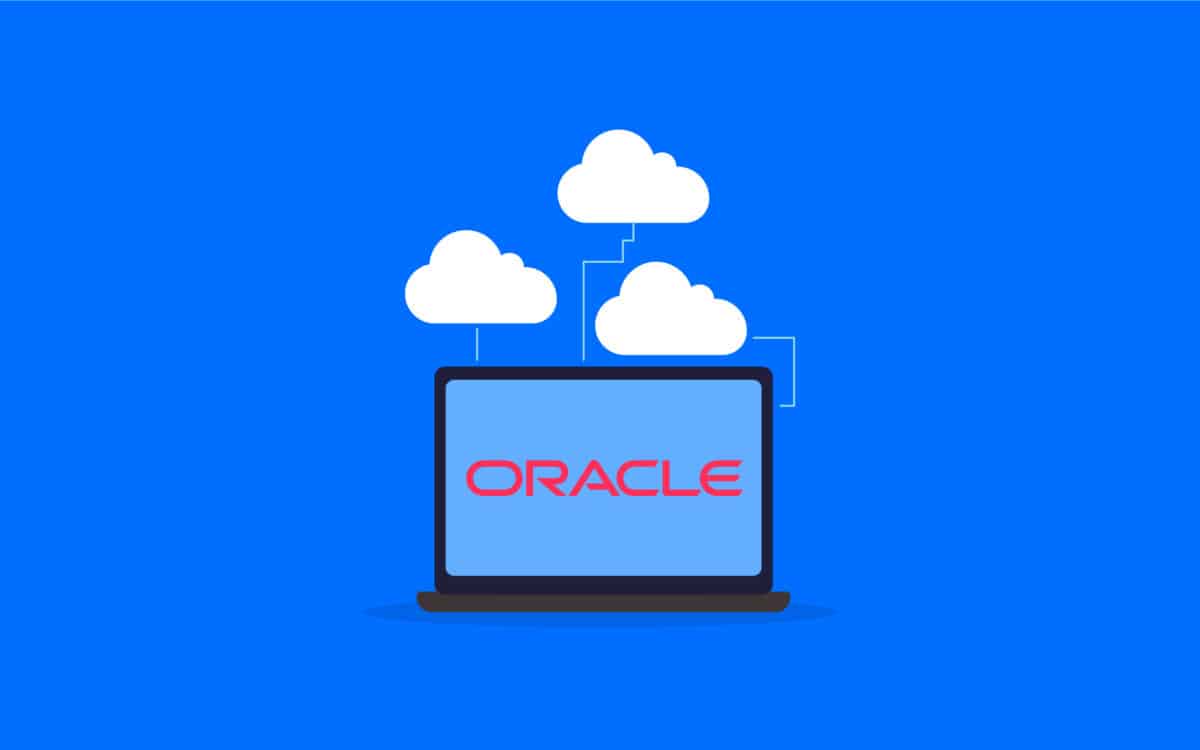
8. Oracle
First launched in 1977, the Oracle Corporation is a multinational technology company, and one of the largest software brands in the world. Like many technology brands, the company wanted to choose something more emotional and evocative for its name.
The word “Oracle” reminds us of the people best-known for providing wise and insightful counsel in the older ages of humanity. It’s an excellent insight into the company’s focus on sharing valuable knowledge.
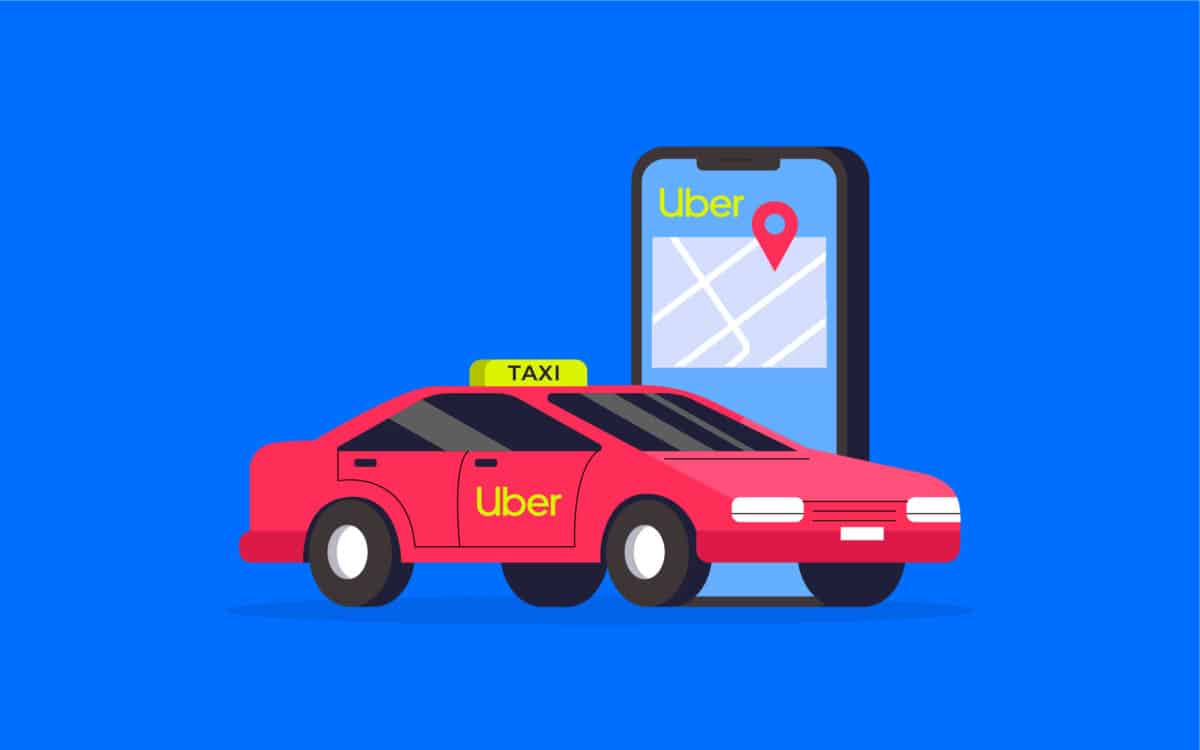
9. Uber
One of the newer companies on the market to leverage the benefits of an evocative brand name, Uber is an American mobility as a service company. It essentially works like a taxi company, giving people easy access to transportation throughout the world.
The term “Uber” was chosen to connect the company to modern and innovative concepts. At the same time, “Uber” also makes us think of excellence and outstanding performance.

10. Innocent
An excellent example of an evocative brand name from a food and beverages company, the “Innocent” title gives the business a sense of credibility and transparency.
The term “innocence” makes us think of purity, which is ideal for a company best-known for making smoothies with all-natural ingredients.
According to the company, the name was chosen to highlight the values and vision of the company, as well as its promise to deliver completely pure and natural ingredients.
Tips for an evocative brand name
As you can see, evocative brand names have a lot of potential in the business landscape, particularly when you know how to choose your title as effectively as possible.
Evocative names elicit a strong emotional reaction from customers and help to differentiate your business from other companies in the same industry.
Some top tips to keep in mind when choosing an evocative name include:
Do your research
You’ll need an extensive knowledge of your audience, market, and your own brand before you can choose an evocative brand name. It’s crucial to understand what kind of terms will resonate with your customers, and how you want to portray your business.
Keep it simple
Although evocative brand names are often clever, it’s important not to choose something too complex. You need to ensure your name is something your audience can understand, as well as something easy to say and remember. Keep it simple.
Invest in your brand
Evocative brand names can’t do much on their own. It’s up to you to ensure they’re having the right emotional impact on your audience. This means investing heavily in the right marketing and branding strategies to boost your name.
Do your due diligence
Make sure you double-check the name you’re choosing hasn’t already been taken by another brand or sounds too similar to an existing name. It’s also worth checking the meaning of the name translates into different languages and cultures.
Test your name
Don’t choose an evocative name in a vacuum. Make sure you talk to your shareholders and partners, to find out more about how they respond to the name. If you’re rebranding and have existing customers, you can also collect feedback from customers.
One of the best ways to improve your chances of picking the best evocative brand name, is to get some expert help. A professional naming agency will be able to do a lot of the work involved with choosing an evocative name on your behalf.
This could include doing due diligence for you and exploring the meaning behind different words.
Branding agencies also have a lot more experience with language and linguistics, so they may be able to suggest evocative titles you wouldn’t think of yourself.
Finding evocative brand names
Evocative brand names can be an excellent choice for businesses hoping to create an emotional connection with their target audience. These titles are meaningful and engaging, easy to remember, and fantastic for adapting alongside your business as it grows.
However, it’s important to have the right strategy in place to make your evocative titles a success. Take your time, do your research, and make sure the title you choose has the right impact on your audience, wherever they are in the world.
Fabrik: A naming agency for our times.

We’ve made our name famous by naming other businesses.
Get in touch if you have a company, product, or service that requires a unique name. Click below, and let’s start a conversation today!
Now read these:
—Types of brand names, the ultimate guide
—An in-depth guide to descriptive brand names
—The pros and cons of abstract brand names
—Your guide to invented company names
—Is a lexical brand name right for your business?
—An insight into acronymic business names
—Putting geographic brand names on the map
—Should you name a business after yourself?
—Definitive guide to compound brand names
—Exploring the trend for modern brands names
—Is a playful business name right for you?
—Adding up alphanumeric company names
—Why are metaphorical brand names popular?
—Weighing up technical company names
—Getting to grips with historical brand names


